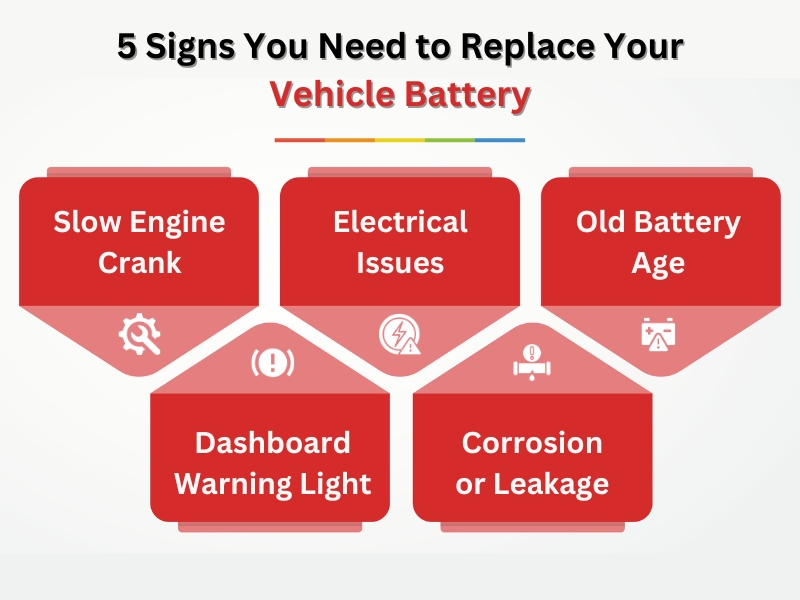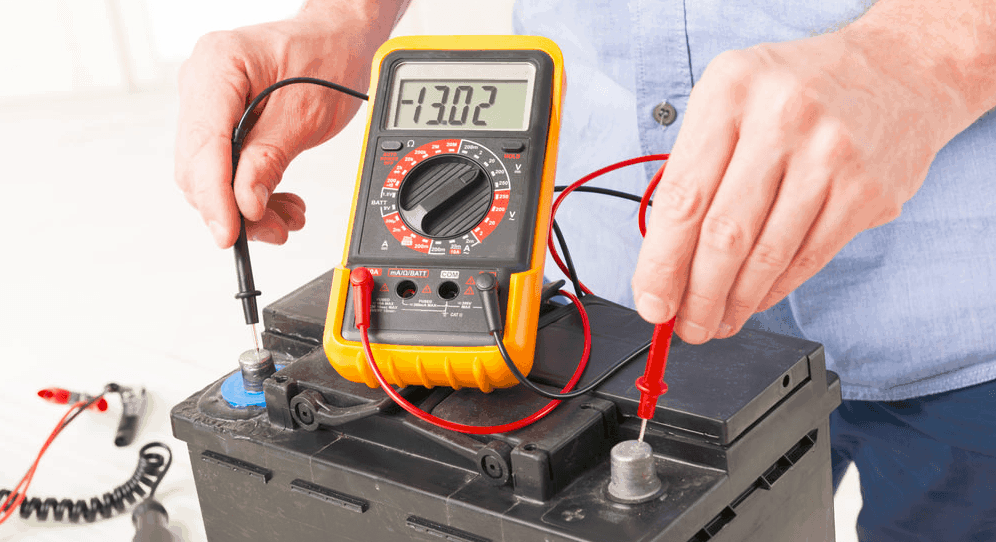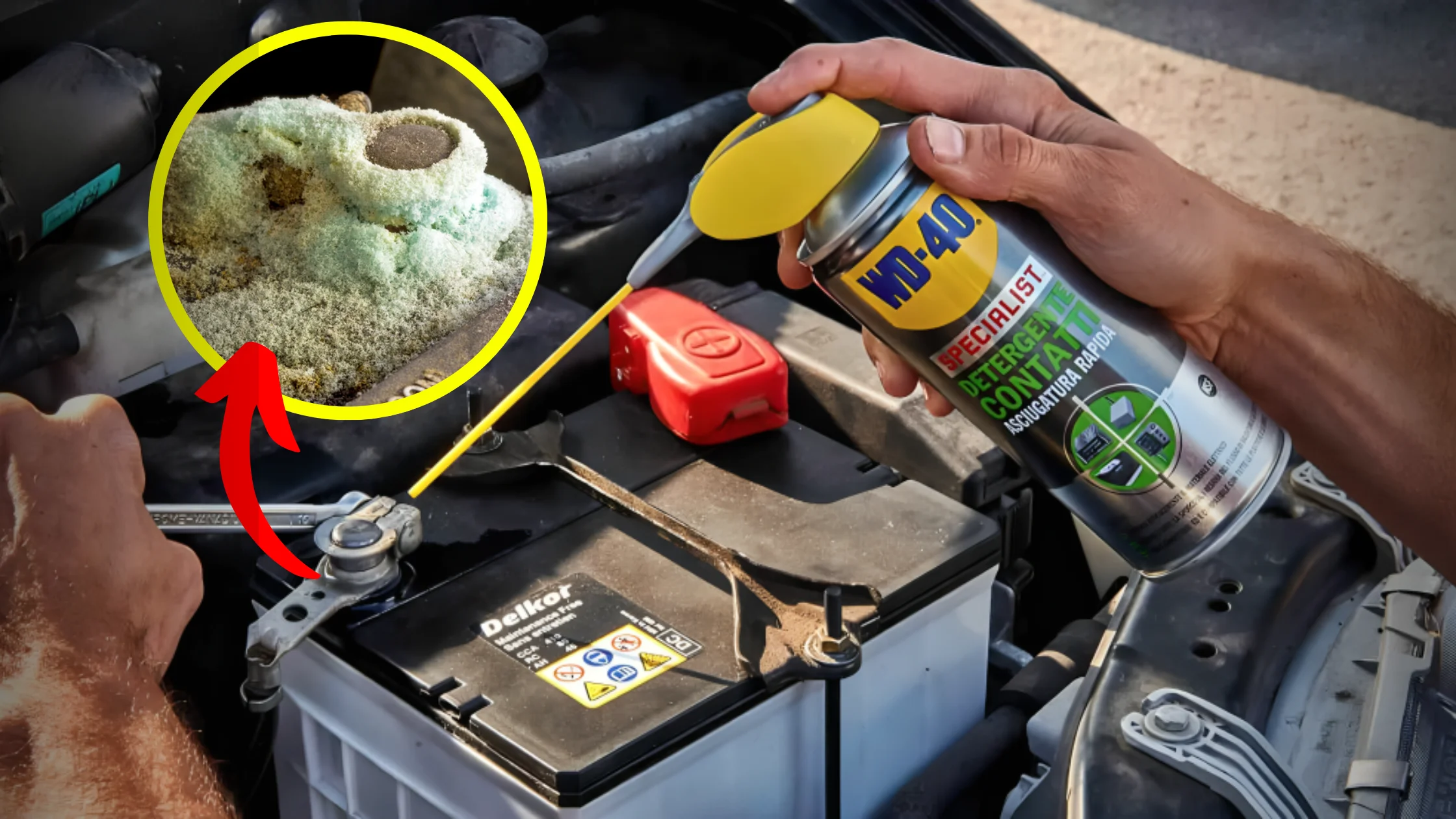Your car’s battery might be a small component, but it plays a massive role in your vehicle’s daily operation. Whether you’re heading to work or on a long road trip, a failing battery can leave you stranded, late, and facing unexpected expenses.
A little negligence—like skipping routine checks or ignoring early warning signs—can lead to costly breakdowns. In this article, we’ll explore the warning signs of a weak car battery, what they mean, and how to avoid trouble before it starts.
Why Car Battery Health Matters
Your car’s battery powers everything from starting the engine to running the lights, dashboard systems, and electronics. A weak or failing battery can:
-
Cause your car not to start
-
Lead to poor electrical performance
-
Damage other vehicle systems if left unchecked
5 Warning Signs Your Car Battery Is Weak

If you notice any of the following signs, it’s time to inspect or replace your battery:
1. Slow Engine Crank
When you start your car, does the engine take longer than usual to turn over? A sluggish crank is often the first sign of battery trouble.
2. Dim Headlights and Electrical Issues
Your headlights may look noticeably dim, or your power windows, radio, or air conditioner may act up. A weak battery can’t supply consistent voltage to all systems.
3. Battery Warning Light
If your dashboard battery light is on, don’t ignore it. It may signal battery failure or alternator issues.
4. Clicking Sound When Starting
Hearing a clicking noise but no engine start? That’s a classic sign of a dead or nearly dead battery.
5. Corroded Battery Terminals
Check for white or blue corrosion on the battery terminals—it affects the connection and can prevent your car from starting.
How to Test Your Car Battery

You don’t need to wait until you’re stuck on the road to test your battery:
-
Use a multimeter to check voltage (12.6V or higher = healthy battery).
-
Visit a local auto parts store—many offer free battery testing.
-
Ask your mechanic to include battery checks during regular maintenance.
Tips to Extend Car Battery Life

Want to avoid battery problems in the future? Here’s how:
-
Drive your car regularly to keep the battery charged.
-
Turn off lights, AC, and electronics before shutting off the engine.
-
Clean corrosion from terminals using a brush and baking soda solution.
-
Avoid short trips that don’t give the battery time to recharge fully.
When to Replace Your Battery

Car batteries typically last 3–5 years, depending on your driving habits and environment. If your battery is nearing the end of its life, don’t wait for it to fail—replace it proactively.
Check your battery’s manufacture date, and if it’s over 3 years old, consider testing or replacing it before problems start.
Final Thoughts
Neglecting your car battery can lead to wasted time, expensive towing bills, and unnecessary stress. By learning to recognize early warning signs and practicing good battery maintenance, you’ll save yourself money and frustration in the long run.



